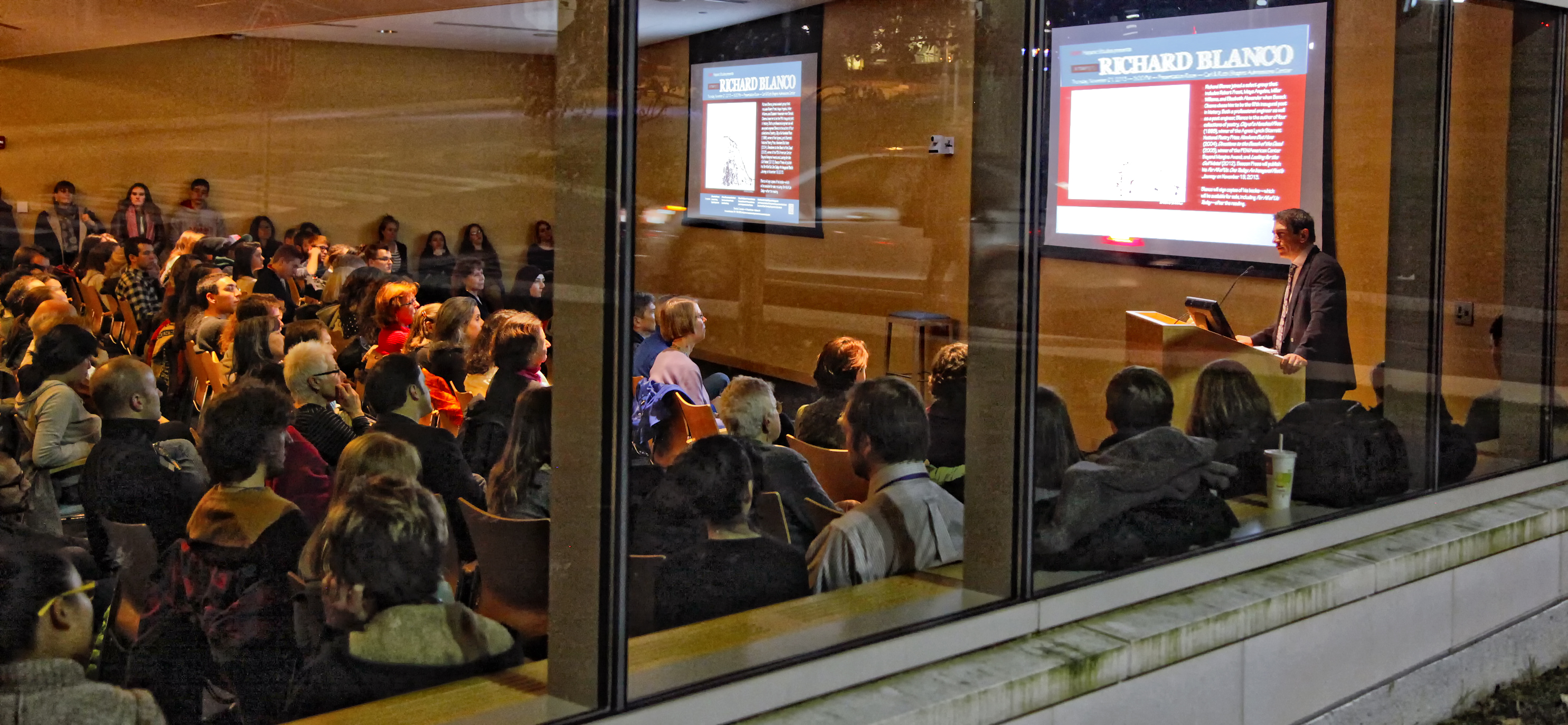Poetic justice
Inaugural poet debuts new book about road to presidential podium
 Photos/Mike Lovett
Photos/Mike LovettThe youngest person, first Latino and first openly gay man to assume the honor, Blanco debuted at Brandeis his new book, “For All of Us, One Today” (Beacon Press, 2013), which chronicles his life-changing experience as the fifth inaugural poet.
For more than an hour Thursday, he regaled a standing-room-only audience with tales of his emotional and geographic journey — searching for a cure to a feeling of lifelong displacement, a quest for a sense of “home.”
Introducing him at the Hispanic studies program event, James Mandrell, associate professor of Hispanic studies, comparative literature and film studies, called his inclusion in Obama’s second inauguration ceremony “important, even historic.”
“It exemplified the types of inclusion we never thought we’d see in the political realm,” Mandrell said.
“He was made in Cuba, assembled in Spain,” Mandrell said, a line Blanco later reiterated, adding “and imported to America,” explaining that his mother was seven months pregnant with him when she and his father left Cuba for Spain, and later for the U.S., where they settled in Miami.
“My first newborn picture was my picture for a green card,” Blanco said.
There were a lot of stories in the press, he said, about him and his inaugural poem, “One Today,” but they never captured the emotional component of his journey. Sharing the story that led him around the world and to Washington, D.C., Blanco read excerpts from his preface, which introduced each of the three poems he wrote for the inauguration, as well as seven other pieces that revolved largely around his sense of ethnic and cultural identity.
But the book “gets down to nit and grit, including stories of Beyonce,” Blanco teased.
In Miami, Blanco recalled, there was a tremendous Latino community that was isolated from the rest of the population and so his “concept of America was what I saw on TV.”
But his search for his place in the world is not unique, he said. Though the details of his story are peppered with the mangos and sunshine of Cuba, it’s a natural, human instinct, he said, which is evidenced in all forms of art. “Country roads, take me home,” he offered, quoting the John Denver song.
He began his reading with “America,” a poem about his efforts to convince his Cuban family to observe a traditional Thanksgiving, a holiday he says Cubans never understood, and concluded with “One Today.”
Categories: Arts, International Affairs





